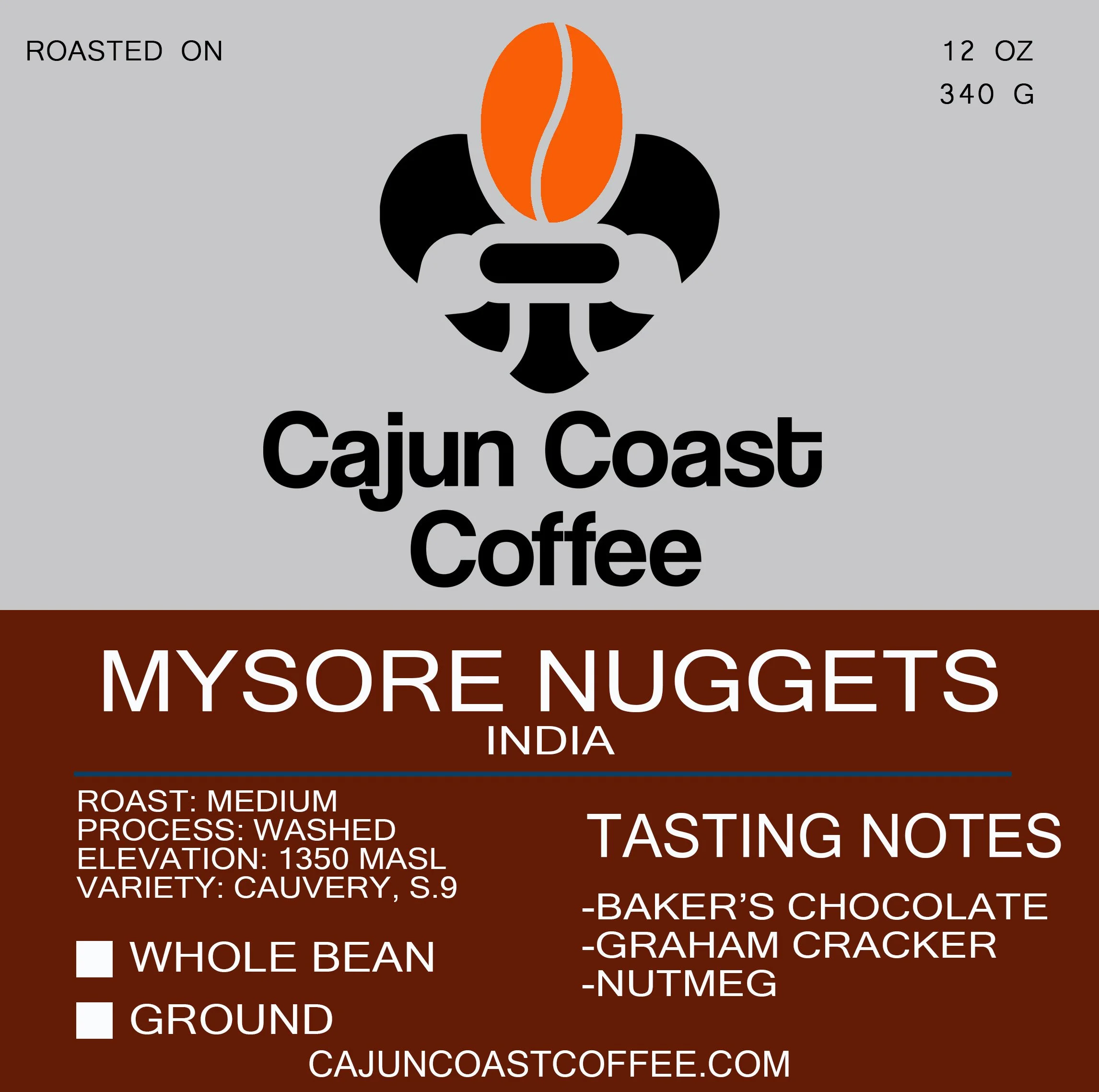
Better days begin
with better coffee.
Roaster’s Choices
Look, we get it. Sometimes making decisions is hard, especially when there are so many great options to choose from. This is why we came up with Cajun Coast Coffee’s World Tour! Purchasing this option takes the decision making out of your hand’s and leaves it up to us. We may choose something from our normal single origin options, maybe something special that we have a very limited supply of, or it could be something we are looking to offer in the future.
If subscribed to this, we will try to not send you the same thing multiple orders in a row, we want this to be an opportunity to try coffee from around the world! Because of this, roast level, country of origin, and variety will vary from order to order.
Sourced from the southwestern Chikmagalur district––the coffee capital of India––the Mysore bean produces rich flavor and a decadent finish.
Tasting Notes: Baker’s Chocolate, Graham Crackers, Nutmeg
Roast Level: Medium
Process: Washed
Altitude: 1350 MASL
Varietal: Cauvery, S.9
This coffee is a blend from various coffee producers across Tanzania in the Kilimanjaro and Arusha regions. These groups come from districts in Kilimanjaro such as Hai and Moshi Rural district, in addition the coffee was also sourced from Meru district close to the town of Arusha. The producers of this coffee have farms between 1-2 hectares in size and intercrop with bananas and avocado.
Tasting Notes: Brown Sugar, Black Tea, Citrus and Berries
Process: Washed
Altitude: 1100-1700 MASL
Variety: Bourbon, N39, Kent, Comfact, Nyasa




